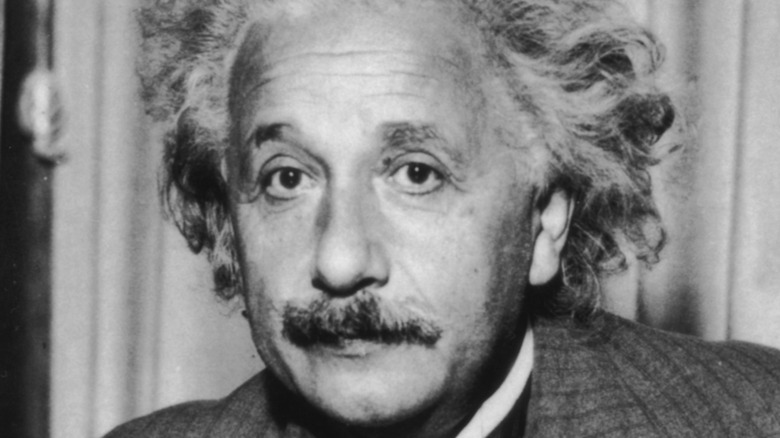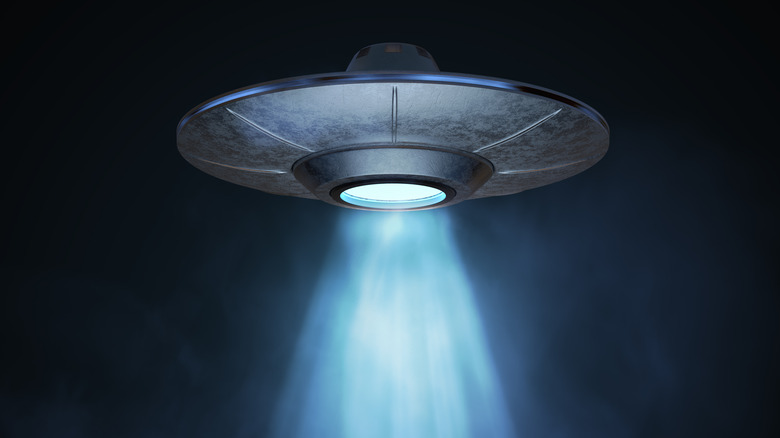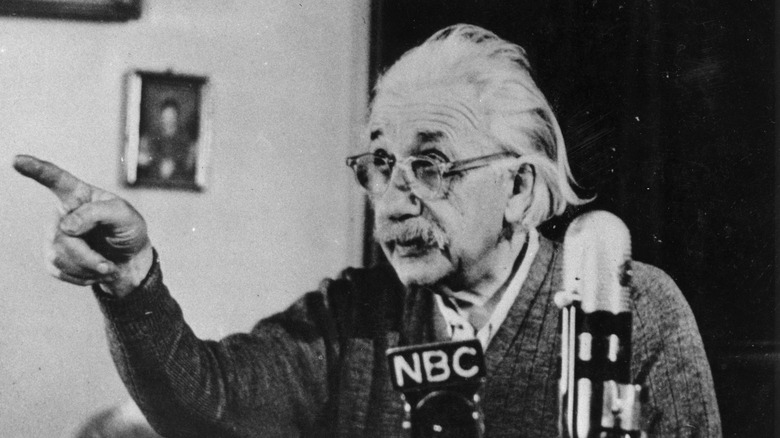The Story Behind Albert Einstein's UFO Letter
1952 was a big year for UFOs or flying saucers, as the press liked to call them. In the first six months of the year, there were more than 16,000 mentions of UFOs in nearly 150 newspapers across the U.S., according to "The Autonomy of History: Truth and Method from Erasmus to Gibbon." The year before, the popular Hollywood film "The Day the Earth Stood Still" came out, cashing in on the growing hysteria around outer space aliens, garnering rave reviews and a Golden Globe, per TCM, and ushering in a slew of other UFO-themed films.
As in the 1951 movie in which an alien craft appears over Washington, D.C., in July 1952, the nation's capitol became a hotbed of alleged UFO activity. Over several weeks, at least a dozen unidentified objects appeared on military and civilian radar screens and streaked across the skies according to witnesses that included airline pilots, per History. It wasn't long after this that Albert Einstein, dubbed the "Brain" by the media, made the national news when he gave his opinion, a terse one at that, on all the hubbub, per The Herald-Palladium.
The evangelist and the physicist
That summer, Rev. Louis A. Gardner, an interdenominational evangelist from Los Angeles, wrote a letter to Albert Einstein. By 1952, Einstein was the world's most celebrated physicist who'd won the Nobel prize in physics, discovered the special theory of relativity, and urged on the U.S. development of nuclear weapons (and then spent his later years trying to halt nuclear proliferation), per Biography and National Geographic.
Gardner wanted to know Einstein's thoughts on whether the flying saucers originated in outer space, perhaps Mars or Venus, whether rivals of the U.S. had produced them, or if they were American-made Air Force craft, per the A.P. In a letter dated July 23, 1952, Einstein answered the inquisitive reverend. The letter, typed out on official stationery from The Institute for Advanced Study, in Princeton, N.J., gave Einstein's answer to these burning questions in two sentences and generated lots of tongue-in-cheek headlines across the country.
Einstein and alien life
Albert Einstein gave a brief response to the Rev. Louis A. Gardner. "These people have seen something," Einstein wrote back. "What it is I do not know and I am not curious to know." When the UFO enthusiast and attention-seeking evangelist went to the press with the letter, newspaper editors and journalists had fun with the story with headlines like "Saucers' Not Einstein's Dish" and punny sentences such as, "Evidently Einstein finds the subject 'relatively' uninteresting," per The Daily Sentinel-Tribune.
Einstein's response, which seemed out of character for a man with such an inquisitive mind, is even stranger when compared to an earlier statement he gave to the press. In January 1920, he discussed the possibility of extraterrestrial life with London's Daily Mail. "There is every reason to believe that Mars and other planets are inhabited," he told the newspaper (via Smithsonian). "Why should earth be the only planet supporting human life?"


